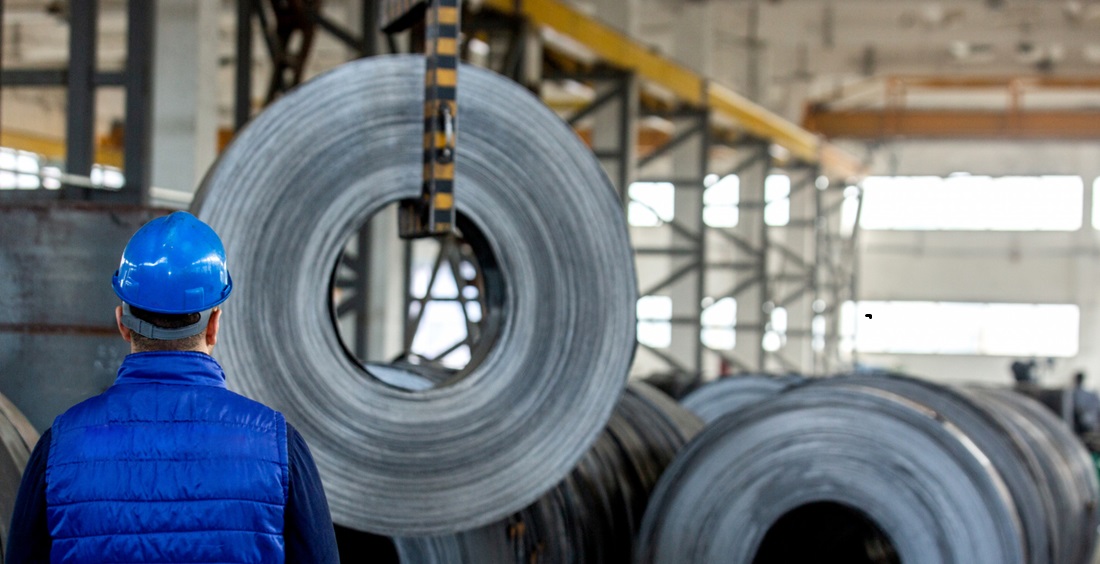
Brazil denounces U.S. tariffs on steel and aluminum as unjustified, misguided
Mar, 13, 2025 Posted by Sylvia SchandertWeek 202511
The Lula administration responded on Wednesday to U.S. President Donald Trump’s decision to impose a 25% import tariff on all steel and aluminum exports to the United States. In a joint statement issued by the Foreign Affairs Ministry (Itamaraty) and the Ministry of Development, Industry, Trade, and Services (MDIC), the Brazilian government condemned the measures as “unjustifiable” and “misguided.”
Furthermore, the government said that, in coordination with the private sector, it would take steps to protect the interests of domestic producers, including through the World Trade Organization (WTO). This institution has lost influence in recent years but remains a vital forum for resolving international trade disputes.
The statement was released after Vice President Geraldo Alckmin met with President Lula on Wednesday afternoon to discuss a response to the U.S. government.
“In defense of Brazilian businesses and workers, and in line with its traditional support for the multilateral trade system, the Brazilian government considers the imposition of unilateral trade barriers that impact commerce between Brazil and the United States unjustifiable and misguided—especially given the history of cooperation and economic integration between the two nations,” the statement read.
The Brazilian government also acknowledged that the new steel tariffs would have a “significant impact” on Brazil’s steel and aluminum exports. In 2024 alone, exports of these products reached $3.2 billion. The statement further argued that Mr. Trump’s decision contradicts the “history of cooperation and economic integration between the two countries.”
“In the case of steel, the Brazilian and U.S. industries have maintained a mutually beneficial, complementary relationship for decades,” the statement noted.
The chart below shows the top destinations for Brazil’s steel product exports in 2024, according to Datamar data.
Steel Products Destinations | 2024 | TEUs
Source: DataLiner (click here to request a demo)
The government vowed to “defend” the interests of domestic producers at the WTO. “Given the tangible impact of these measures on Brazilian exports, the Brazilian government will, in coordination with the private sector, advocate for the interests of national producers in discussions with the U.S. government,” the statement added. The Trump administration has expressed interest in reducing the role of the WTO.
This issue is expected to be revisited on Friday, when Mr. Alckmin will lead another meeting with U.S. government representatives. However, the vice president acknowledged that bringing the matter to the WTO remains a viable option.
“This is one possibility. We support multilateralism and economic complementarity, and the WTO exists precisely for this purpose—to establish rules that apply to everyone,” Mr. Alckmin said.
Mr. Alckmin, however, noted that Brazil’s first course of action would “always be dialogue.” “Through dialogue, we intend to deepen our engagement with the United States in the coming days and weeks while deeply regretting this decision. It raises product prices, hinders trade, and constitutes a unilateral measure. Brazil will also evaluate other potential responses,” he said.
Chief of Staff Minister Rui Costa additionally expressed concern over the situation, noting that Mr. Lula still believes an agreement can be reached with the United States. According to Mr. Costa, the Brazilian government is inclined to wait for the outcome of Friday’s meeting before making any “decisions” or taking “further action.”
“President Lula has decided to hold off on any position or measures until after this meeting, as he believes an understanding can still be reached,” Mr. Costa noted. When asked about Mr. Lula’s recent remarks suggesting that Brazil would apply “reciprocity” if the U.S. imposed tariffs, Mr. Costa sought to downplay the comment.
“This is a standard practice in international diplomacy. The term ‘reciprocity’ is often used in diplomatic and economic relations. That’s how countries operate—on a reciprocal basis. That’s the norm. In this specific case, a decision will only be made after Friday’s meeting,” he added.
Finance Minister Fernando Haddad echoed a similar stance, emphasizing that Brazil’s strategy will be to negotiate with the U.S. government in an effort to reverse the situation. Mr. Haddad attended a meeting with Brazil’s steel industry representatives on Wednesday morning.
According to him, the industry presented “very solid arguments” that the tariffs “are not beneficial even for the United States.” Based on these discussions, the Ministry of Finance will submit a technical note on the matter to the Mdic to support Brazil’s position in negotiations. “Certainly, the U.S. will not simply remain inactive in the face of this [potential recession],” Mr. Haddad said.
Source: Valor International
-
Economy
Dec, 03, 2024
0
New DataLiner Data: Brazil’s Container Imports Soars to Yet Another Record in 2024
-
Ports and Terminals
Oct, 17, 2023
0
Pernambuco-native Francisco Martins takes over presidency of PortosRio
-
Meat
Oct, 03, 2021
0
September chicken meat trading sees record-breaking averages
-
Ports and Terminals
Sep, 25, 2023
0
Government plans concessions at Port of Santos



